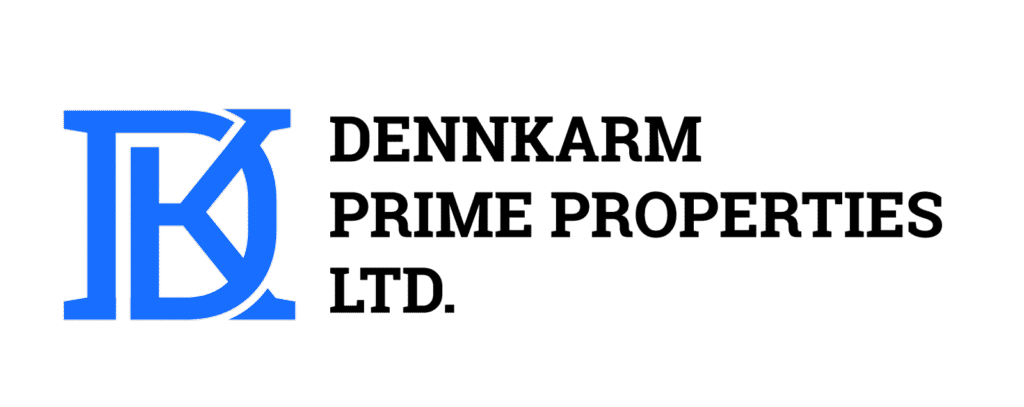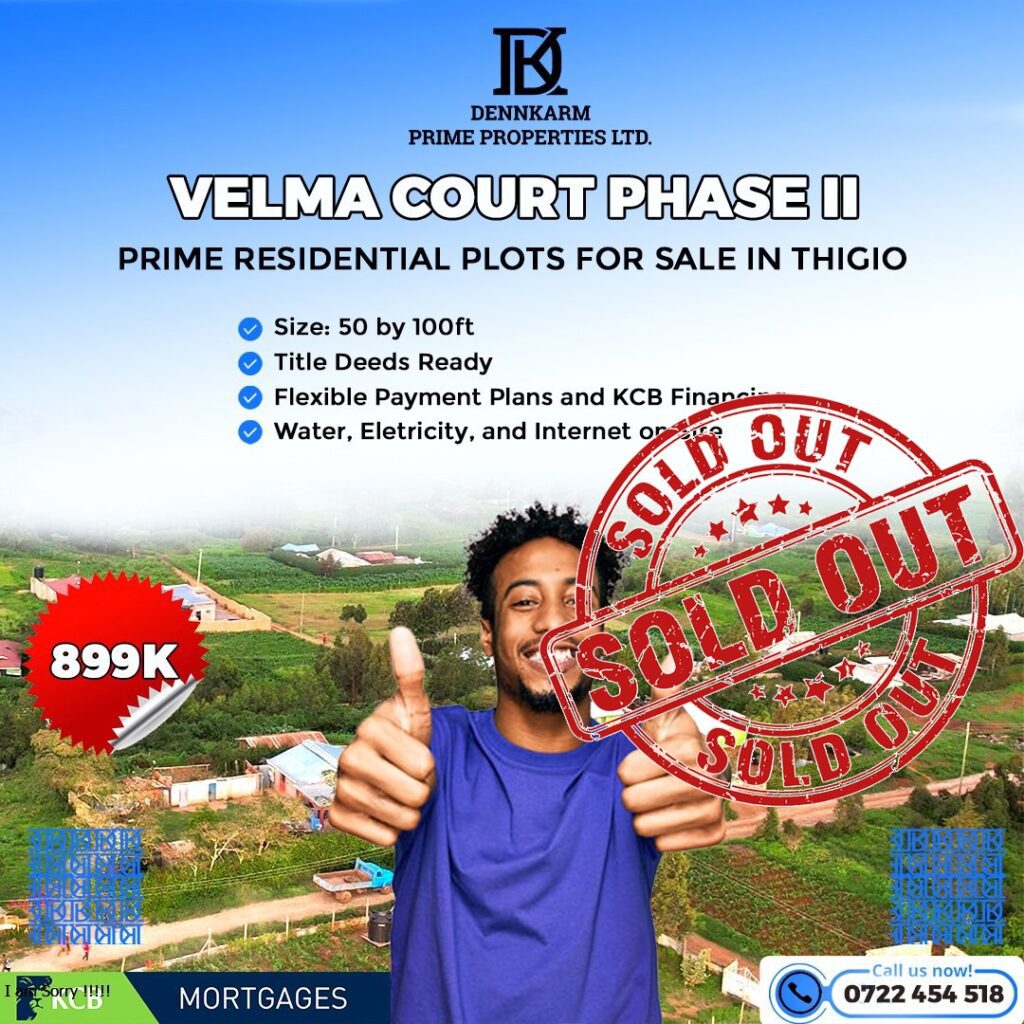Table of Contents
- Introduction: Bridging the Distance, Building Your Legacy
- Chapter 1: Defining Your Investment Goals and Strategy
- Chapter 2: The Cornerstone of Security: Vetting Your Partner (The Dennkarm Prime Properties Advantage)
- Chapter 3: Navigating Land Tenure: Freehold vs. Leasehold Explained
- Chapter 4: Remote Due Diligence: The Ardhisasa Digital Fortress
- Chapter 5: The Essential Legal Tool: Power of Attorney (PoA) Masterclass
- Chapter 6: Secure Transaction Flow and Payment Protocols
- Chapter 7: Post-Acquisition Security: Fencing, Beacons, and Rates
- Chapter 8: Taxation and Rental Income Management for Non-Residents
- Chapter 9: Diaspora-Targeted Financial Solutions (Mortgages and Installment Plans)
- Conclusion: Your Secure Path to Property Ownership
- More Information
- Call to Action
1. Introduction: Bridging the Distance, Building Your Legacy

For the millions of Kenyans who reside in the global diaspora, the dream of owning a tangible asset back home is a potent mix of emotional attachment and financial pragmatism. Diaspora remittances are not just sustaining; they are the single largest source of foreign exchange for the country, and a colossal percentage of this wealth is poured into the real estate sector. This capital infusion is driving rapid growth in satellite towns and planned communities, presenting lucrative opportunities.
However, the geographical distance creates unique and often anxiety-inducing challenges, primarily the risk of fraud, mismanagement by intermediaries, and navigating complex legal processes remotely. This comprehensive, 10-chapter guide by Dennkarm Prime Properties is designed to demystify the entire process, providing a robust, step-by-step framework to ensure your investment in Kenyan real estate is legitimate, secure, and poised for maximum appreciation. By following this structure, you can transform your hard-earned foreign currency into a verified, high-growth asset back home with complete peace of mind.
2. Chapter 1: Defining Your Investment Goals and Strategy
Clarity of purpose is the first line of defence against investment mistakes. Your investment strategy must align perfectly with your financial timeline and ultimate goal.
2.1. Long-Term Capital Appreciation (Land Banking)
This strategy focuses on purchasing prime, undeveloped land in rapidly appreciating zones, such as the peri-urban areas along new infrastructure corridors. The goal is a significant return (exit strategy) in 5 to 10 years.
- Target Areas: Satellite towns like Thigio in Kikuyu—locations benefiting from the decentralization trend, where land is currently affordable but appreciation is high due to infrastructure (e.g., new highways, ring roads) and demographic shifts.
- Risk Profile: Low operational risk (no tenants, no maintenance) but tied to long-term market cycles.
2.2. Passive Rental Income (Yield)
The goal is immediate, stable cash flow. This involves investing in built residential or commercial units.
- Target Segments: Affordable housing units (high occupancy), student housing (near major universities), or serviced apartments (targeting corporate tenants and short-term rentals).
- Key Metric: Focus on rental yield (annual rental income divided by the property’s cost), ensuring it outweighs the risk of property management fees and vacancy periods.
2.3. Lifestyle and Future Retirement Home
This goal prioritizes quality of life, security, and amenities over immediate maximum yield.
- Target Properties: Gated, well-planned communities or mixed-use developments that offer controlled access, integrated security, green spaces, and reliable water/power supply.
- Value Driver: The quality of life and the ability of the property to serve as a genuine home base upon eventual return.
3. Chapter 2: The Cornerstone of Security: Vetting Your Partner (The Dennkarm Prime Properties Advantage)
For the diaspora investor, the developer is not merely a seller; they are the essential intermediary, your “eyes and ears” on the ground. A reputable partner provides the transparency and logistical support required for a remote transaction. Dennkarm Prime Properties has built its reputation on facilitating secure, remote investments.
3.1. Non-Negotiable Vetting Criteria
- Verifiable Track Record: Demand to see evidence of completed projects with titles issued. A company with a long, public history has a brand reputation to protect, which acts as your guarantee.
- Legal Standing: Verify the company’s registration details with the Registrar of Companies and confirm their physical office location.
- Diaspora-Specific Service: Your partner should offer high-quality digital support:
- Virtual Site Tours: Drone footage, live video calls, and geo-tagged photos of the specific plot.
- Flexible Financing: Specialized installment plans that cushion the impact of currency fluctuations.
3.2. The Transparency Test
A trustworthy developer will never resist or charge you for undertaking independent due diligence. They must readily provide:
- A copy of the Mother Title Deed for the block of land.
- A copy of the Approved Subdivision Scheme (Deed Plan).
- The coordinates and beacon numbers for the specific plot you are purchasing.
4. Chapter 3: Navigating Land Tenure: Freehold vs. Leasehold Explained
Understanding Kenya’s land tenure system is crucial, especially for foreign citizens or dual-nationals.

4.1. Freehold Title
This grants the owner the absolute right of ownership of the land for an indefinite period (perpetuity).
- Who Can Own: Only Kenyan citizens (including dual citizens who have declared their status).
- Implication: This is the most secure form of ownership, typically used for agricultural and residential plots in satellite towns.
4.2. Leasehold Title
This grants ownership for a specific period, typically 99 years, starting from a certain date, subject to conditions and payment of annual rent to the national or county government.
- Who Can Own: Foreign nationals and, commonly, citizens in urban areas (apartments, townhouses).
- Implication: You own the structure and the right to use the land, but not the land outright. The lease is renewable upon expiry.
Dennkarm Prime Properties primarily deals with high-potential, secure freehold land parcels in high-growth zones like Thigio, offering maximum security and appreciation potential to Kenyan citizens in the diaspora.
5. Chapter 4: Remote Due Diligence: The Ardhisasa Digital Fortress
The government’s shift to the digital Ardhisasa platform has transformed remote land verification, making it safer than ever. This is the single most important step in the entire process.
5.1. The Critical Role of Your Independent Lawyer
Never allow the developer’s lawyer to perform due diligence. You must engage your own independent, licensed lawyer who specialises in Kenyan property law. They will act as your fiduciary agent.
5.2. Conducting the Ardhisasa Search
Your lawyer uses the parcel number (provided by the developer) to conduct an official online search. This search is instantaneous and confirms:
- Legitimacy of Ownership: The current registered proprietor, ensuring it aligns with the developer.
- Freedom from Encumbrance: Confirms that the title is free of any caveats (a formal warning), cautions (a protective filing), court disputes, or bank charges (loans). A clean title is non-negotiable.
- Accuracy of Details: Verifies the acreage and the Deed Plan (map) are correct.
5.3. Site Verification and Beacon Confirmation
After the title search, a physical visit must be arranged by your lawyer or trusted agent. This step verifies:
- The Location and Accessibility of the land.
- The Beacons (boundary markers) are correctly placed as per the Deed Plan and the land is not subject to encroachment.
6. Chapter 5: The Essential Legal Tool: Power of Attorney (PoA) Masterclass
Since you cannot be physically present to sign the Sale Agreement and the Transfer Documents, the Power of Attorney (PoA) is your indispensable legal safeguard.
6.1. The PoA Mechanism
A PoA is a legal instrument that grants a trusted agent (your attorney-in-fact), typically your lawyer, the authority to act on your behalf, including signing the official property transfer documents.
6.2. Types of PoA and Best Practices
- Specific PoA is Paramount: Always use a Specific Power of Attorney which limits your agent’s authority only to the stated purpose—the purchase of the designated property. Never issue a General PoA, which grants authority over all your financial affairs.
- Execution Abroad: The PoA must be signed by you in the presence of a Notary Public or a Kenyan Consular Officer/Diplomatic Agent in your country of residence. This legal witnessing process makes the document valid for use in Kenya.
- Registration: The executed PoA must be registered with the Registrar of Documents in Kenya before it can be legally used for the property transfer.
7. Chapter 6: Secure Transaction Flow and Payment Protocols
Mitigating financial risk involves a rigorous adherence to formal payment channels and the legal transaction timeline.
7.1. The 4-Step Transaction Flow
- Offer and Acceptance: You confirm the price, and the developer (e.g., Dennkarm Prime Properties) issues a Letter of Offer/Sale Agreement.
- Deposit and Due Diligence: You pay a negotiated deposit (typically 10-30% for plots/off-plan) into an escrow account held by your independent lawyer. This account holds the funds until your lawyer confirms a clear title.
- Completion and Transfer: Upon confirmation of a clear title, you pay the remaining balance to the developer’s verified corporate bank account, and the title transfer process begins.
- Registration: The documents are lodged at the Land Registry, and the new Title Deed (in your name) is issued.
7.2. Payment Security Rules
- Corporate Accounts Only: Always transfer funds directly from your foreign bank account to the developer’s verified corporate bank account. Never transfer to a personal account or an unverified intermediary.
- Official Receipts: Demand official, signed, and stamped receipts for every single transaction, regardless of the amount.
8. Chapter 7: Post-Acquisition Security: Fencing, Beacons, and Rates

Receiving the title deed is not the final step; securing the physical asset is crucial, especially for undeveloped land.
8.1. Protecting the Boundaries
- Fencing/Demarcation: Immediately after acquisition, fence the plot or plant a live hedge along the boundaries as defined by the beacons. This physical demarcation is the single most effective way to prevent encroachment.
- Regular Checks: If the land is held for the long term, arrange for a trusted property manager or agent to check the beacons periodically to ensure they have not been moved.
8.2. Compliance and Land Rates
- Annual Land Rates: Landowners must pay annual land rates to the respective County Government. Failure to pay accumulates penalties and can, in extreme cases, lead to the land being held as collateral.
- Management Mandate: Give your lawyer or property manager a clear mandate to pay these rates annually and send you the official receipts for your records.
9. Chapter 8: Taxation and Rental Income Management for Non-Residents
Diaspora investors must understand their tax obligations to ensure full legal compliance.
9.1. Rental Income Tax
Rental income earned in Kenya is subject to tax. For residential property, the tax is generally based on a simplified formula (Residential Rental Income Tax) or the standard graduated scale, depending on the amount.
- Withholding Agent: If you engage a property management company, they may be required to withhold a percentage of the rent and remit it directly to the Kenya Revenue Authority (KRA) on your behalf, providing you with a certificate.
9.2. Capital Gains Tax (CGT)
This is a tax levied on the profit made from the sale of property (land or buildings).
- Current Rate: CGT is applied at a fixed rate (consult current KRA regulations for the exact figure, typically around 15% of the net gain).
- Compliance: Your lawyer is legally required to collect the CGT due before the property transfer is registered, ensuring the government receives its share before the sale is concluded.
10. Chapter 9: Diaspora-Targeted Financial Solutions (Mortgages and Installment Plans)
The Kenyan financial sector has developed specific products to cater to the unique needs of the diaspora.
10.1. Diaspora Mortgages
Several local commercial banks (e.g., KCB, NCBA, Co-op Bank) offer tailored mortgage products.
- Eligibility: Often requires proof of stable income (pay slips, employment contracts) from your country of residence, a good credit history abroad, and a percentage down payment (e.g., 10-25%).
- Advantages: Allows you to leverage capital and finance large acquisitions without exhausting your cash reserves.
10.2. Installment Plans (The Dennkarm Advantage)
For land purchases, a direct interest-free instalment plan with a reputable developer like Dennkarm Prime Properties is often the easiest and most flexible option.
- Mechanism: After paying the deposit, the balance is spread over an agreed-upon period (e.g., 6, 9, or 12 months) without accruing interest.
- Benefit: Protects the investor from volatile currency fluctuations by fixing the price and allowing them to remit funds as convenient, directly mitigating the risk of large lump-sum transfers.
11. Conclusion: Your Secure Path to Property Ownership
Investing in Kenyan real estate from abroad offers immense potential for wealth creation and the ultimate fulfillment of a connection to home. However, success hinges not on the location alone, but on the process and the partners you choose. By insisting on independent legal counsel, leveraging the digital security of the Ardhisasa platform, and partnering with a transparent, established developer like Dennkarm Prime Properties, you can confidently navigate the market, secure your title, and ensure your investment is a source of pride and prosperity. The time to invest in your legacy is now—securely.
12. More Information
For accurate and up-to-date official information and to deepen your understanding of the legal landscape, please consult the following resources:
- Kenya Revenue Authority (KRA) Guide on Real Estate Taxation (CGT/Rental Income): [Link to KRA’s official guide on rental income/CGT]
- Ministry of Lands, Public Works, Housing and Urban Development (Ardhisasa Platform): [Link to the Ardhisasa portal or official Ministry site]
- Kenya’s Diaspora Investment Policy and Initiatives: [Link to a relevant official government page on Diaspora Affairs]
- 4 Promising Up and Coming Real Estate Hotspots in Kenya
- 5 Best Ways to Finance Land in Kenya
- Ministry of Lands and Physical Planning – Visit Here
- Kenya Revenue Authority – Real Estate Taxation Guide – Read More
13. Call to Action
Ready to take the next step towards owning your property in a secure, high-growth area like Thigio in Kikuyu? Our team specialises in facilitating secure, remote investments for the diaspora, offering verified titles and flexible payment plans.
Contact Dennkarm Prime Properties Today for a virtual consultation and property portfolio:
- Dennkarm Prime Properties
- Call Us: 0722-45-45-18 / 0101-45-45-00.
- Email Us: info@dennkarmproperties.com




